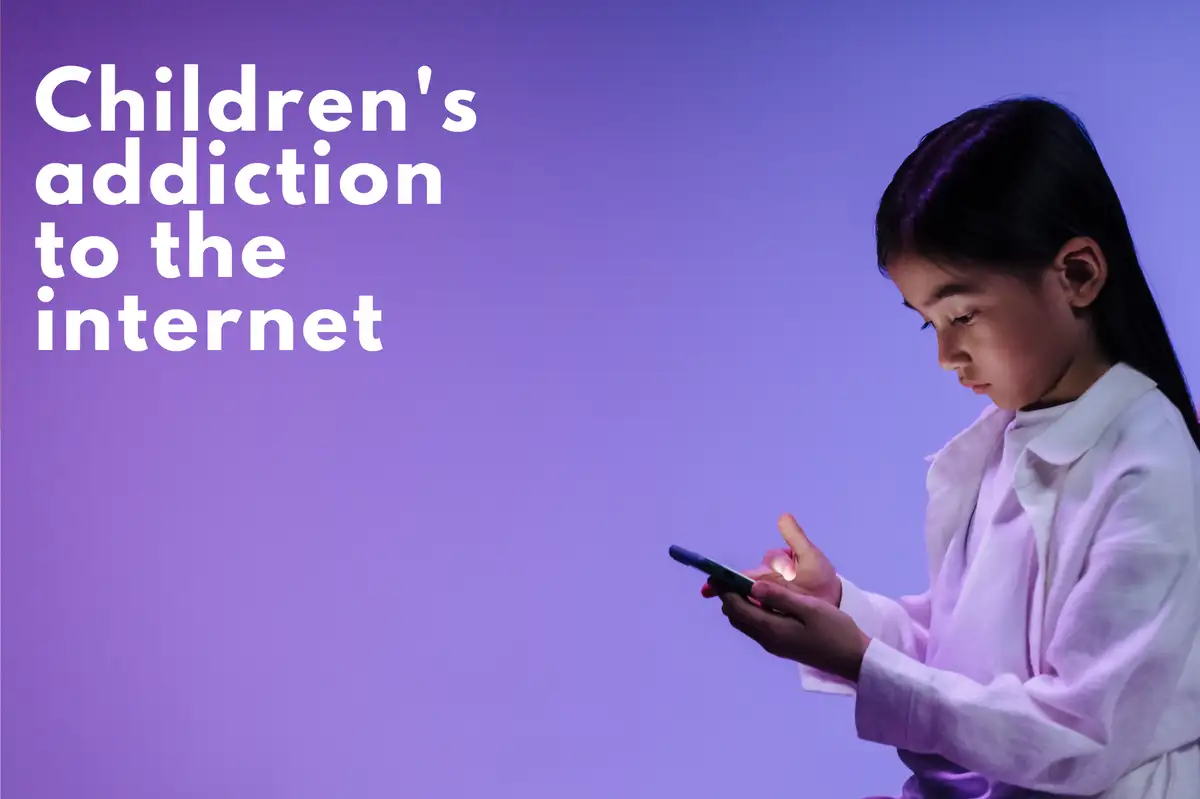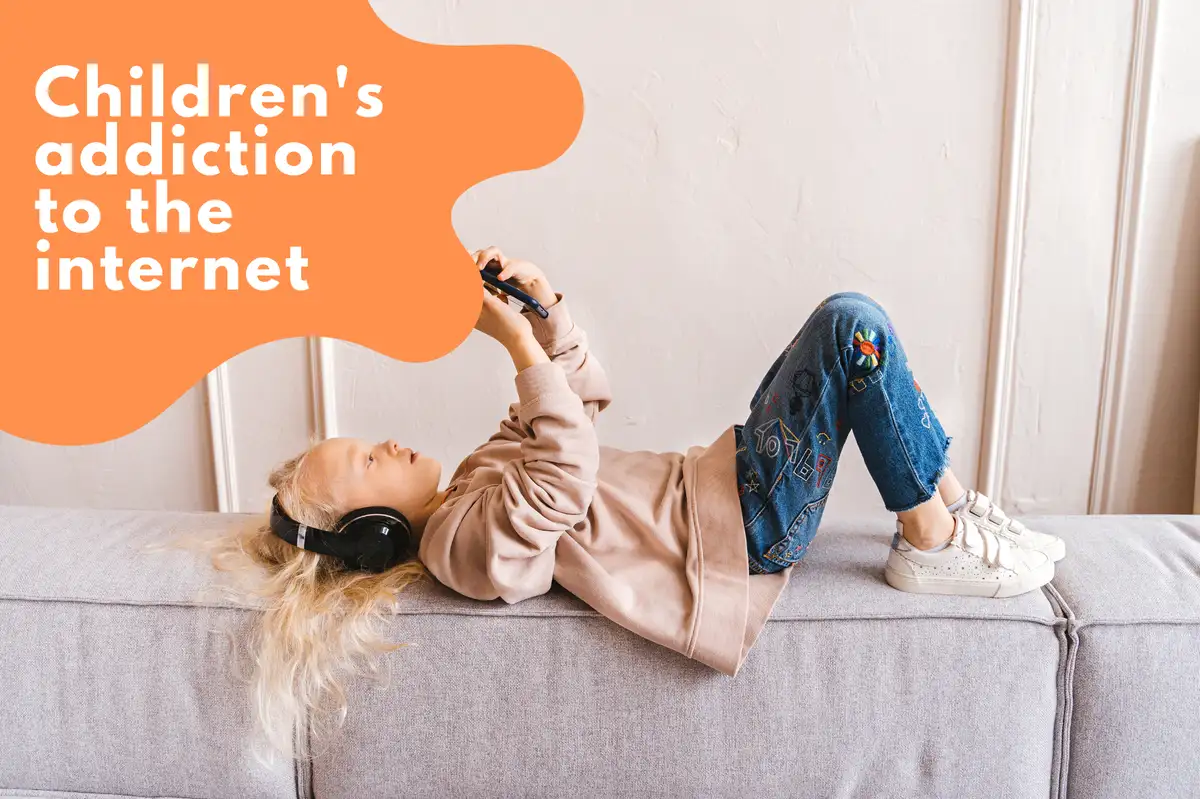A Deep Dive Into Internet Addiction
The advent of digital technology and the internet has provided a wealth of benefits, fostering global connectivity and facilitating access to information. However, the dark side of this digital revolution has manifested in a new form of addiction – internet addiction. In our complex world, understanding this phenomenon is a pressing issue. Internet addiction, also known as problematic internet use or compulsive internet use, is an obsessive-compulsive disorder that involves an individual's inability to control their internet use, which eventually interferes with their daily life and functioning.The Definition of Internet Addiction
Internet addiction can be defined as a behavioral disorder where an individual’s internet usage causes mental, social, or physical problems. It’s a multi-faceted issue, encompassing a range of behaviors and impulse-control problems.Symptoms of Internet Addiction
Common symptoms of internet addiction include:- Feeling a constant need to use the internet
- An inability to control internet use
- Experiencing withdrawal symptoms when not using the internet
- A sense of restlessness or irritability when trying to cut down internet usage
- Losing track of time while online and neglecting other essential tasks
- Strained personal or professional relationships due to excessive internet usage
Causes of Internet Addiction
Internet addiction can stem from various sources. Some individuals may use the internet as a form of escapism, seeking solace from real-life problems like stress, anxiety, or depression. For others, the internet serves as a platform for different types of addictive behaviors, such as gambling, gaming, or online shopping.Types of Internet Addiction
Internet addiction can be broadly classified into five types:- Cybersex Addiction: Compulsive use of internet pornography, adult chat rooms, or adult fantasy role-play sites.
- Net Compulsions: Obsessive online gambling, shopping, or stock trading.
- Information Overload: Compulsive web surfing or database searching.
- Computer Addiction: Obsessive computer game playing.
- Cyber-Relationship Addiction: Over-involvement in online relationships.

Impact of Internet Addiction
Internet addiction can have severe physical, emotional, and social consequences. Physically, excessive screen time can lead to sleep disorders, eye strain, carpal tunnel syndrome, and poor personal hygiene. Emotional effects may include feelings of guilt, anxiety, depression, and social isolation. Socially, internet addiction can lead to conflicts in relationships and poor academic or job performance.Strategies for Managing Internet Addiction
Managing internet addiction effectively involves multiple strategies:- Cognitive Behavioral Therapy (CBT): This therapeutic approach helps individuals understand the thoughts and feelings that influence their behaviors. It can be particularly effective in managing internet addiction by helping individuals recognize and change patterns of thought that lead to compulsive internet use.
- Family Therapy: Internet addiction often affects the whole family. Involving family members in therapy can help them understand the issue and learn how to support the individual in their recovery.
- Self-Care Practices: Regular exercise, a healthy diet, and adequate sleep can boost mood and energy levels, reducing the desire for excessive internet use.
- Setting Boundaries: It can be beneficial to set specific boundaries for internet use, such as limiting the amount of time spent online each day and avoiding internet usage in the hours before bedtime.
Seeking Professional Help for Internet Addiction
If you suspect you or a loved one is suffering from internet addiction, it's vital to seek professional help. Trained psychologists and therapists can diagnose the condition accurately and provide effective treatment strategies tailored to the individual's needs. Some of the techniques professionals might use include:- Motivational Interviewing: This therapeutic approach can help individuals increase their motivation to change their internet use behaviors.
- Mindfulness-Based Therapies: Mindfulness-based strategies can help individuals become more aware of their internet use patterns and triggers, enabling them to manage their responses more effectively.
- Group Therapy: Joining a group therapy session can provide valuable support from peers who are facing the same challenges, fostering a sense of community and shared understanding.
Prevention Strategies for Internet Addiction
While treatment is essential for those already dealing with internet addiction, prevention strategies can be highly effective in reducing the risk of this disorder. Here are some useful tactics:- Digital Detox: Regularly scheduled time away from digital devices can help maintain a healthy balance between online and offline life.
- Mindful Use of Technology: Using technology intentionally, rather than mindlessly, can help prevent compulsive internet use.
- Education: Learning about the risks and potential harms of excessive internet use can encourage more responsible online behavior.
The Role of Society and Tech Companies in Addressing Internet Addiction
It's important to acknowledge that the problem of internet addiction extends beyond individual responsibility. Society at large, and technology companies, in particular, have roles to play in addressing this issue. Tech companies can take steps to make their products less addictive, such as providing users with more control over notifications and reducing the prominence of addictive features.Final Thoughts on Internet Addiction
In our increasingly connected world, it's essential to maintain a balanced relationship with technology. Understanding the signs, symptoms, and consequences of internet addiction, as well as the available treatment and prevention strategies, can help us navigate the digital landscape more healthily and productively. This comprehensive guide is a stepping stone towards that understanding. However, if you or someone you know is struggling with internet addiction, seeking professional help is the most effective first step toward recovery. Let's remember, the internet is a tool designed for our use - we must not let it use us.Introducing Avosmart: A Solution for Internet Addiction in Children
An excellent resource for addressing internet addiction, particularly in children, is the use of parental control applications. One such app that stands out in this realm is Avosmart. Avosmart is an advanced digital tool designed to aid parents in managing their children's online activities. Avosmart allows for the blocking of specific websites and applications, ensuring that your child is shielded from potentially harmful or addictive online content. Additionally, it offers a feature that sets time limits for certain websites and applications, reinforcing healthy boundaries around screen time and ensuring that your child maintains a balanced digital diet. The most noteworthy aspect of Avosmart is its capacity for full parental control and monitoring. It provides parents with the peace of mind of knowing what their children are doing online. This complete transparency can help you identify any signs of internet addiction in your child early on and take appropriate action. By employing Avosmart, you will be able to tackle your child's internet addiction head-on, effectively combatting this modern-day challenge. The integration of such a tool in your child's digital life could mark a significant step towards a healthier and more balanced relationship with technology.Frequently Asked Questions: Children's addiction to the internet
Why do children get addicted to the Internet?
Children can become addicted to the internet for a variety of reasons. The internet provides a space for entertainment, social interaction, and escape from reality, all of which can be particularly appealing to children. They may also turn to the internet due to boredom, loneliness, or to avoid negative emotions or life stressors.What happens when kids spend too much time on the Internet?
Excessive internet usage can have various negative impacts on children. These can include poor academic performance, reduced physical activity leading to potential health issues, and decreased social interaction leading to potential social skill deficits. Additionally, too much time online can expose children to inappropriate content and the risk of online predators.How can I control my child's internet addiction?
Control over your child's internet addiction can be achieved through several strategies. Implementing rules and boundaries regarding internet use, encouraging offline activities, and maintaining open communication about internet safety is crucial. Using parental control apps, like Avosmart, can also help manage and monitor your child's online activity.What are the 5 effects of internet addiction?
The effects of internet addiction can be numerous and varied. Here are five key effects:- Physical Health Issues: Extended periods spent online can lead to a lack of physical activity, causing issues like obesity, eye strain, and carpal tunnel syndrome.
- Mental Health Problems: Internet addiction can contribute to anxiety, depression, loneliness, and feelings of guilt or shame.
- Poor Academic Performance: Excessive internet use can lead to a decreased focus on academics, resulting in lower grades and impaired learning.
- Social Isolation: Internet addiction often leads to decreased face-to-face social interaction, leading to potential issues with developing and maintaining real-life relationships.
- Sleep Disturbance: Internet addiction often results in irregular sleep patterns or sleep deprivation, which can have wide-ranging negative effects on health and well-being.

